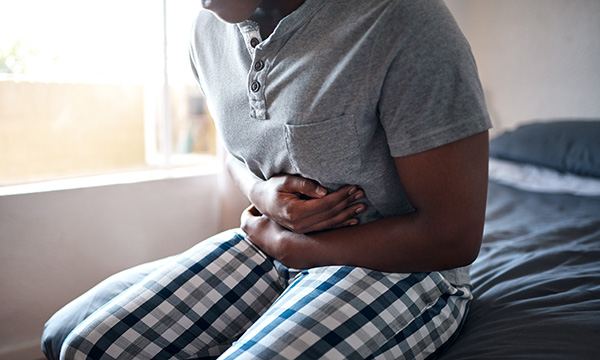Do you have a fear of germs? Are you constantly washing your hands, or avoiding public places? If so, you may be struggling with Bowel Obsession OCD. This is a type of OCD that is focused on the bowels and can cause a lot of anxiety and distress. In this blog post, we will discuss what you need to know about the OCD of the bowel to manage it effectively.
Contents
What Is Bowel Obsession OCD?
Bowel OCD is an obsessional fear of the bowels, which is often accompanied by excessive washing and cleaning rituals. The fear may be related to a fear of germs or a feeling that something bad will happen if the bowels are not kept clean. People with bowel OCD may experience intense anxiety when coming into contact with anything related to their bowels, such as going to the bathroom or handling objects that have been in contact with their feces.
What Are The Common Signs Of Bowel OCD?

People with bowel OCD may experience a variety of symptoms, including:
- Fear And Anxiety: People with bowel OCD often feel a strong sense of fear and anxiety when faced with anything related to their bowels. This can lead to avoidance of certain activities or situations, such as going to the bathroom in public places or handling objects that have been in contact with feces.
- Cleaning And Washing Rituals: People with this type of OCD may engage in excessive hand-washing and cleaning rituals, out of fear that something bad will happen if they do not keep their environment clean.
- Obsessive Thoughts: People with bowel obsession OCD may experience intrusive and obsessive thoughts about their bowels. These can be difficult to control and can lead to feelings of guilt or shame.
- Compulsive Checking: People may also feel compelled to constantly check for signs of contamination, such as checking toilets for germs and looking at their hands multiple times throughout the day.
- Distress And Discomfort: The fear and anxiety associated with bowel OCD can also lead to physical discomfort and distress.
Can OCD Cause Bowel Problems?
It is important to note that OCD does not cause physical bowel problems. However, the anxiety associated with this disorder can lead to an increase in symptoms such as abdominal pain and diarrhea. It is also possible for people with OCD to develop related psychological conditions, such as depression or anxiety disorders. OCD can imbalance the biosystem and this can lead to physical health, such as bowel problems.
Can Bowel Problems Be Psychological?
Yes, there is evidence to suggest that psychological factors can play a role in the development of certain bowel problems. For example, people with OCD may experience an increase in symptoms such as abdominal pain and diarrhea due to the anxiety associated with their disorder. Stress and depression may also contribute to the development of certain gastrointestinal disorders.
How To Manage Bowel Obsession OCD?

Fortunately, there are several strategies that can help people manage their symptoms of bowel OCD. These include:
- Cognitive Behavioral Therapy: Cognitive behavioral therapy (CBT) is a form of psychotherapy that focuses on helping people identify and challenge negative thoughts and beliefs. This type of therapy can be helpful in managing the fear and anxiety associated with bowel OCD.
- Exposure And Response Prevention: Exposure and response prevention (ERP) involves gradually exposing oneself to feared objects or situations while learning how to respond without engaging in compulsive behaviors. This type of therapy can be useful in helping people manage their obsessions and compulsions related to bowel obsession OCD.
- Medication: Certain medications, such as selective serotonin reuptake inhibitors (SSRIs), may also be prescribed. It is helpful to reduce symptoms such as anxiety and depression associated with this disorder.
- Support Group: Support groups can also be a great resource for people struggling with OCD. Connecting with others who understand the struggles of living with this disorder can help provide much needed social and emotional support. By understanding the signs, symptoms, and treatment options available for bowel OCD, individuals can take steps to manage their condition and live a healthier life.
- Self-Help Strategies: In addition to professional treatment, there are a number of self-help strategies that can be used to manage the symptoms of bowel OCD. These include relaxation techniques, mindfulness meditation, and deep breathing exercises. Additionally, it is important for people with this disorder to practice good hygiene habits and make sure they are getting enough rest and exercise.
- Healthy Lifestyle: Lastly, a healthy lifestyle is essential for managing any mental health condition. Eating nutritious meals, engaging in regular physical activity, and getting enough sleep. All of this can all help improve mental wellbeing and reduce the symptoms of OCD.
Conclusion
Bowel OCD is a type of obsessive-compulsive disorder (OCD) characterized by strong fears and anxiety related to one’s bowels. People with this disorder may experience a variety of symptoms. This includes such as fear and anxiety, cleaning and washing rituals, compulsive checking, and physical discomfort. There is evidence to suggest that psychological factors can play a role in the development of certain bowel problems. Fortunately, there are a number of strategies that can help people manage their symptoms of bowel OCD. Just as cognitive behavioral therapy (CBT), exposure and response prevention (ERP), medication, and self-help strategies.
For more information and guidance, please contact MantraCare. OCD is a mental health disorder characterized by obsessions and compulsions. If you have any queries regarding Online OCD Counseling experienced therapists at MantraCare can help: Book a trial OCD therapy session


